10 Standout Sundance Films to Look Forward to This Year
From a movie about an aspiring bodybuilder to one about a school teacher reforming children, here are the films from this year’s Sundance Film Festival that will set the tone for 2023
Sundance, the world’s most prestigious independent film festival, returned to its in-person avatar this year after a Covid break of two years.
Held every January in Park City, Utah, the Sundance Film Festival favors and promotes independent cinema, but being the first big festival of the year, it also sets the tone for the year in films.
The festival, which draws its name from its patron Robert Redford’s character in the 1969 film, Butch Cassidy and the Sundance Kid, has to its credits several discoveries, including Quentin Tarantino whose debut film, Reservoir Dogs, premiered at the 1992 Sundance Film Festival, and Steven Soderbergh. A struggling filmmaker in 1988, Soderbergh volunteered as a shuttle driver at Sundance, and the next year his film, Sex, Lies, & Videotape, won the audience award at the festival.
There were no such macho discoveries at this year’s edition, but there were several films that marked the arrival of unique voices, and exciting directors, writers and actors.
One of the most talked about movies this year was Cat Person, an adaptation of the 2017 New Yorker short story by Kristen Roupenian. Directed by Susanna Fogel, the film follows a college student, Margot, on a creepy date with a much older man, Robert.
The festival also premiered the first three episodes of Richie Mehta’s series, Poacher, a police procedural and thriller inspired by true events.
The series, written and directed by Mehta (he directed the first season of Delhi Crime), has a beautiful and ironic opening sequence that sets the tone for this tense drama about elephant poaching in India.
Poacher, set in 2015, Kerala, follows Neel Banerjee (Dibyendu Bhattacharya), an intelligence officer, and his task force as they try to trace and catch poachers who have been killing elephants and ripping out their tusks. The trail from the dead elephants leads to the artists who carve the tusks and from there to the art galleries in Delhi that sell exotic, expensive and banned ivory statues to international buyers.
Poacher is shot beautifully and is gripping, but many CGI animals and birds that keep making appearances could have been made slightly more real and a little less perfect. They distract from the otherwise gritty series.
Apart from these, the 10 stand-out Sundance films to look forward to this year are:
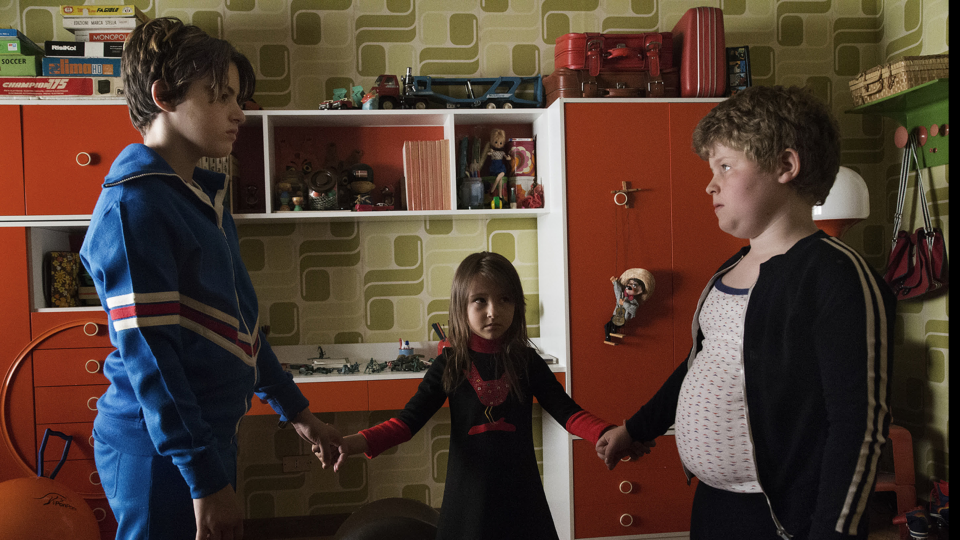
L’immensità
In real life, Penelope Cruz is petite, gorgeous and quite stunning. But her screen presence is a gazillion times more luminous and riveting. Her smile, tears and tight close-ups light up director Emanuele Crialese’s Italian film, L’immensità (Immensity), which premiered at Venice Film Festival and was screened as part of Sundance’s Spotlight section.
The film, set in 1970s Rome, is about Clara (Penelope Cruz), the mother of three young children who is deeply unhappy in her marriage with a rich but abusive man. She feels trapped in her plush home and repeatedly seeks the safe company of her children to forget her growing disconnect with her own life.
Even to set the dinner table, Clara puts on an LP and turns a boring chore into a joyous musical. As her kids leap around with a billowing tablecloth and pass around plates and cutlery, this brief distraction helps them survive one more day. But sometimes, when the shouting gets too loud, and the beating particularly harsh, Clara’s kids try to cope with the dysfunction in unique, creative ways.
Clara’s eldest daughter, Adriana (Luana Giulani), dresses like a boy and introduces herself as Adri. It feels as if she sees power in masculinity and wants to be a man for her mother’s sake, the man her father isn’t.
Gino (Patrizio Francioni) and little Diana (Maria Chiara Goretti) are at ease when Clara is around, but when they witness the abuse by their father Felice (Vincenzo Amato), one picks at her food while the other shits in a little nook outside their bedroom.
Apart from a few outings – which include running in the streets of Rome, visits to a gypsy colony and a family holiday – L’immensità spends most of its time in Clara’s gorgeous Art-Deco apartment that reminded me of Pablo Almodovar’s interiors, except that it’s not as showy.
L’immensità is a beautiful film with excellent performances, but a weak, clichéd ending.
What stays with us is Cruz, who makes light of heavy situations, including physical abuse, by playing little games with her kids, Adri who is the film’s soul, and little Gino whose defiance through excreta is one of the most shocking and memorable moments of this year’s Sundance.
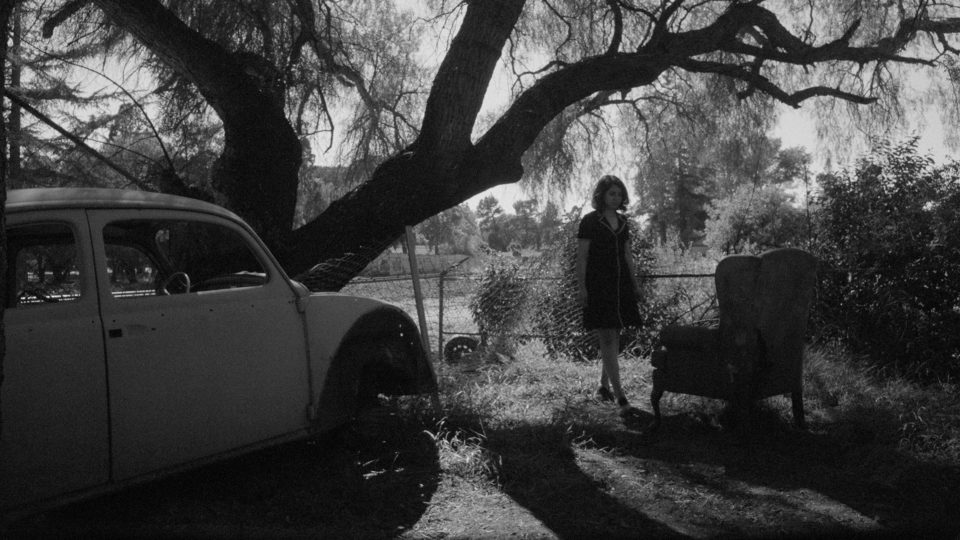
Fremont
Writer-director Babak Jalali’s black-and-white feature film, Fremont, tells the story of 20-something Donya, an Afghan translator who used to work with the US government, and was evacuated when the Taliban took over.
She works at a fortune cookie factory in California’s China Town that’s run by a Chinese couple.
Haunted by her past and guilt about leaving the rest of her family behind, Donya struggles to start a new life, and to sleep.
She has just two friends – one at work and one in the apartment building she lives in – and one of them helps her to see a therapist. Back at the factory, the death of an elderly employee means a promotion for her, and Donya begins to write the messages that go into the fortune cookies.
Jalali, an Iranian-born, UK-based director, cast real-life Afghan refugee Anaita Wali Zada as Donya and his film has a strong visual style.
Fremont has staccato scenes, and the conversations Donya has with her therapist (played by Gregg Turkington), her boss at work and a chef at a restaurant she frequents are brief, awkward and funny.
And then one day, Donya decides to put her phone number in a cookie and send it out into the world. That leads to a road trip and an encounter with a mechanic (played by Jeremy Allen White, better known as “Lip” Gallagher from the series Shameless, who won the Golden Globe for best TV actor for The Bear this year).
Jalali’s film is wry and lyrical at the same time. And its brilliant background score, composed by Mahmood Schricker, is one of the many delightful surprises in this gem of a film.
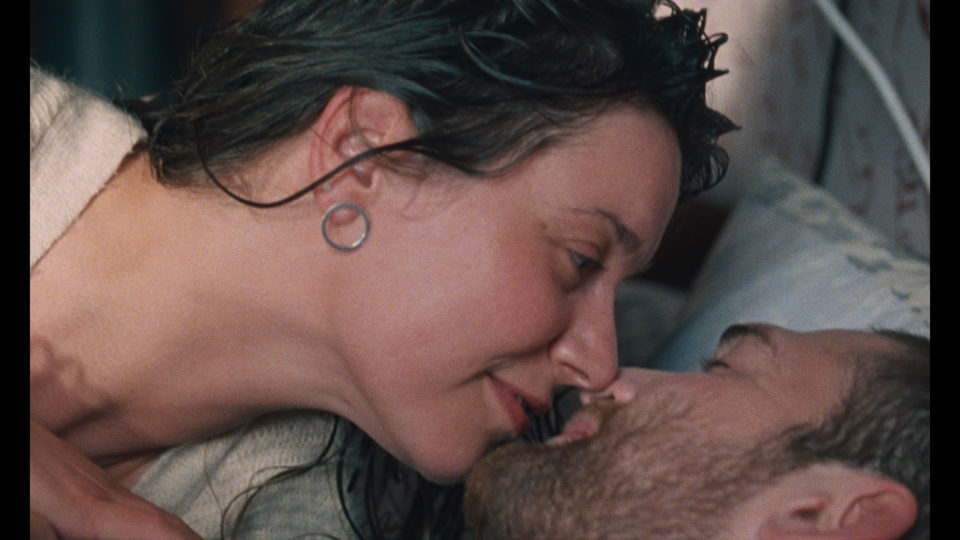
Slow
“Say you love me,” a man tells a woman while he is on top of her.
“I don’t even know you,” Elena (Greta Grineviciute) replies.
Marija Kavtaradze’s Lithuanian film, Slow, opens with this rushed sex scene and immediately draws our attention to love and sex, and how they are often entwined.
Some need to feel love, even when it’s fake, to get aroused in a hook-up, but others, like Elena, a contemporary dancer, don’t feel the need to simulate love. For her sex is important, physical and doesn’t need the crutches of love.
But when Elena meets Dovydas (Kestutis Cicenas), a sign-language interpreter who has been hired to communicate her dance instructions in sign language to a class of deaf and mute dancers, she feels something she has never felt before. There’s warmth, laughter, intimacy and no demands for sex.
Elena and Dovydas go on long walks after her dance classes. He wants to be with her, but he tells her that he is asexual. He feels a lot of attraction, affection, love, but it’s just not sexual.
Slow follows Elena and Dovydas as they fall in love, move in together and try to negotiate a relationship without sex.
In her dance sessions, Elena often gets lost in long, intense, orgasmic sequences, sweating in rhythm, and we wonder what it means to be in a relationship. Is a lovely evening spent drinking, laughing and talking enough, or must it end in sex? Is intimacy without sex possible? Or is sex often a distraction in lieu of intimacy?
At times we feel like something is missing for her. And at times it feels like he is being put in a spot, being made to apologize for no fault of his.
Slow is that rare film which makes you think long after the end credits have rolled.

Shayda
Several films at this year’s Sundance were about mothers and kids and among them Shayda, written and directed by Tehran-born Australian Noora Niasari, stood out.
Niasari’s debut feature tells the story of an Iranian woman, Shayda (Zar Amir Ebrahimi), living in Australia at a women’s shelter home with her six-year-old daughter, Mona. Having fled her husband and filed for divorce, Shayda is trying to protect both and start a life.
We watch Shayda and other women at the shelter home, and in between flashbacks to Tehran of the 1990s, we learn what happened to her as she prepares her statement for her divorce proceedings.
When a court orders that Mona be allowed to meet her father, we experience Shayda’s fear of having to share her young daughter with a man who has a volatile temper and feels entitled to behave
Shayda is an intensely observed and sensitively told story, but it holds because of Zar Amir Ebrahimi’s performance. Last year at the Cannes International Film Festival, Ebrahimi won the best actress award for her performance as journalist Arezoo Rahimi in the Iranian crime thriller, Holy Spider. And in Shayda, with a mix of outer fragility and inner resolve, she creates a character who is determined to escape a man who makes her insides shake.
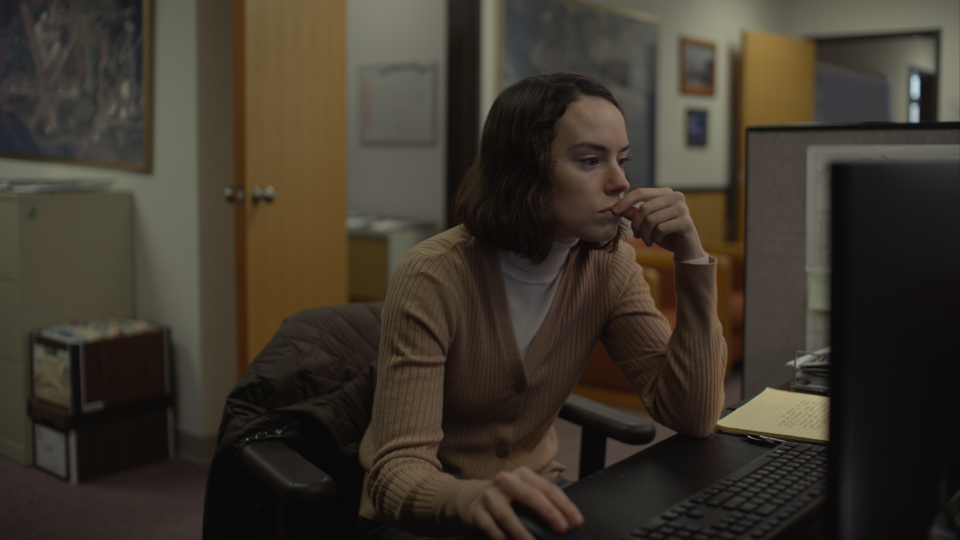
Sometimes I Think About Dying
Fran (Daisy Ridley) works at an office that handles logistics at a shipping port in Oregon. All day she sits staring at her computer with palpable anxiety about being drawn into any office conversation or get-together. She avoids talking, but listens intently to mundane office chatter, and sometimes she imagines being dead.
Fran is good at her job, which is preparing excel sheets, and she likes eating cottage cheese. When the new employee at her office says he too likes cottage cheese and asks her out, she puts on her best dress.
Both seem interested in each other, but she is mostly silent. When he starts to get uncomfortable with her silence and asks her to talk about herself, “I’m not that interesting,” she says.
We watch Fran for her reaction when he trespasses into her space, casually picking little bites of food from her plate, breaking a boundary she had set. He shares his vulnerability, but when she begins to open up, it’s sometimes too much.
Sometimes I Think About Dying, directed by Rachel Lambert, is based on a short film directed by Stefanie Abel Horowitz, which starred Jim Sarbh and was screened at the 2019 edition of Sundance. Its theme is depression and through Fran’s story it asks how to negotiate low-grade depression: Is meeting others sometimes a cure, or is loneliness safer? Does being alone for too long make us forget how to talk to others? Is loneliness initially a choice that spirals into patterns of behaviors that keep us lonely and depressed?
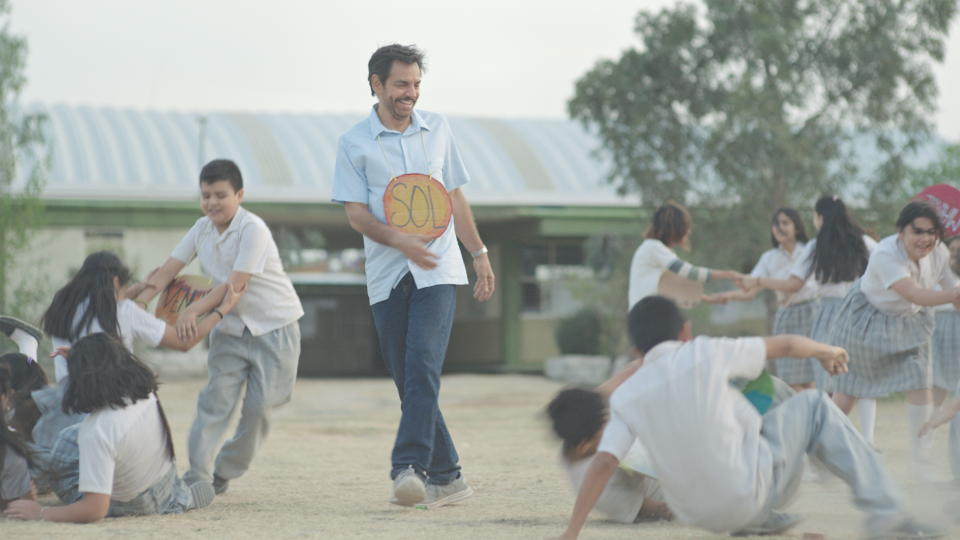
Radical
If To Sir, With Love was an ode to an exceptional teacher, Christopher Zalla’s Radical, set in Jose Urbina Lopez Elementary School in Matamoros, Mexico, is a hymn for sixth-graders the whole world has given up on.
Based on real-life incidents, Radical begins when a new teacher, Sergio Juarez (played by Eugenio Derbez), joins the school that is known for the worst performing students in all of Mexico.
The school is in a poor area where gang fights and dead bodies piled up on streets are a daily occurrence. Some kids carry guns in their school bags, and those who don’t, struggle to get to school after finishing house chores and taking care of their siblings.
The school, too, has been forgotten by the authorities. There’s a computer lab, but no computers. And most teachers prefer to hand out question papers to the students instead of teaching them.
The school feels like a dead-end, a burial ground of children’s aspirations, with no possibility of them getting the slightest opportunity to change their lives. Sergio has no idea what he’s doing, but he believes in teaching.
Things begin to change when Sergio decides to invest in the kids and makes teaching exciting and engaging.
One little girl wants to become a philosopher, another says she wants to join NASA, while Nico (Danilo Guardiola) just wants to leave the gang his brother is a part of.
Radical has a pulsating heart that beats for the children who want to have a shot at life despite the fact that they live in one of the hardest places on earth.
The Sundance audience voted Radical as their favorite film.
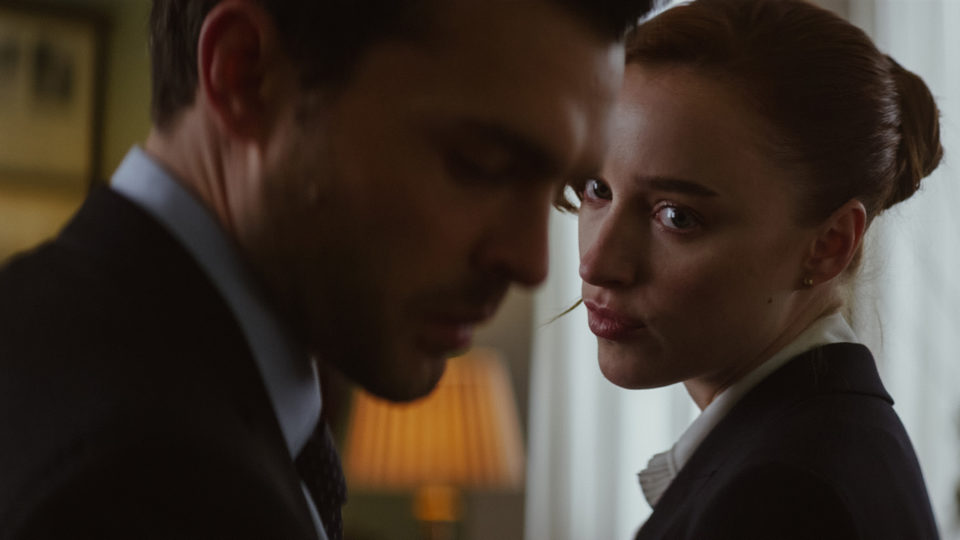
Fair Play
Fair Play, directed by Chloe Domont, is a thriller set in a post-MeToo world. It begins in a public lavatory, with the rushed excitement of a couple who can’t get enough of each other.
Emily (Phoebe Dynevor) and Luke (Alden Ehrenreich) are secretly engaged, and totally into each other. They both work at the same financial firm and should not be dating. That adds an extra layer of excitement to their making out.
Suddenly at the firm, a senior position opens up and for a while it seems that Luke may get the job. He’s on a high, and Emily is very happy for him. But when the position is offered to her, the power dynamics of the relationship change. Love, romance fades and resentment begins to brew inside fragile male egos.
Fair Play, a debut feature by writer-director Chloe Domont, strips down love to a gender war that becomes unbearably ugly. It has been acquired by Netflix.
The film reminded me of Hrishikesh Mukherjee’s Abhimaan starring Amitabh Bachchan and Jaya Bachchan. That film was made in 1973, and it struck me how little things have changed since.
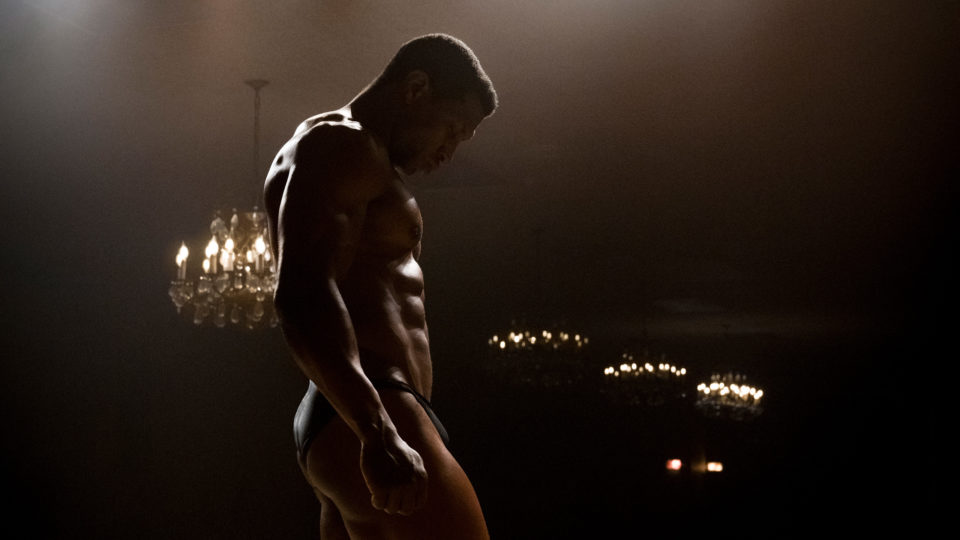
Magazine Dreams
Written and directed by Elijah Bynum, Magazine Dreams tells the story of Killian Maddox (Jonathan Majors), who lives with his aging grandfather, works at a supermarket and is in constant preparation for bodybuilding superstardom.
He exercises till his veins throb, takes steroid injections, and eats large portions of meat to bulk up. His room is plastered with photos of bodybuilders he admires and he is constantly in conversation with them.
Killian doesn’t seem very smart, but he seems determined. He also has a temper and feels disconnected with people around him at work and in life except a woman who works at the supermarket.
When Killian is on the screen, the threat of violence feels constant and intense. And that makes Magazine Dreams unbearable sometimes because it seems to be reinforcing race stereotypes – a big, Black man who is unhinged and given to violent outbursts.
But then the film begins to unpack the stereotype. After an encounter Killian has with one of his idols, the film acquires a feverish, scary tone.
Elijah Bynum’s Magazine Dreams is as much an autopsy of toxic masculinity, as it is of our own prejudices.
It’s not a great film, but it’s an important one, especially because it encases Jonathan Majors’ once-in-a-lifetime performance as Killian Maddox. It’s worthy of an Oscar nomination.

When It Melts
Childhood is not always rosy and joyful. Often it is traumatic and there’s brutality in adolescent games.
Belgian actor-turned-director Veerle Baetens’ debut feature film, which is an adaptation of Lize Spit’s Flemish bestseller, Het Smelt, tells one such story about Eva.
We meet a grown-up Eva (Charlotte De Bruyne) who works as an assistant to a photographer. She doesn’t talk much, seems to be estranged from her parents, and the only relationship she seems to enjoy is with her sister. But her sister is now moving out, leaving their pet, a turtle, behind.
Scrolling Facebook, Eva sees an invite to a celebration in her childhood hometown, and that’s when we meet 13-year-old Eva (Rosa Marchant), in flashback, with her friends, Tim (Anthony Vyt) and Laurens (Matthijs Meertens). Laurens’s mother calls them three musketeers.
It’s a childhood full of bike rides, pools in the backyard, and afternoons spent playing games.
Tim is the group leader and decides that he needs to play a game that requires a riddle and girls. Eva, who has a mild crush on Tim, agrees to lure girls and gets a riddle about a dead man found hanging in a locked unfurnished room, with nothing but a puddle of water under his feet.
But when a pretty girl moves into their neighborhood, one afternoon Eva-the-accomplice becomes the victim.
As an older Eva recalls that afternoon, she decides to go back to her hometown to ask questions, break the silence around her trauma.
Seventeen-year-old Rosa Marchant carries the film on her slender shoulders, and won the special jury award for best performance at Sundance.

A Thousand And One
Inez (played by singer and dancer Teyana Taylor) is the unlikeliest of mothers. Recently released from Rikers Island jail, she is unemployed, has no place to call her own and no money. So when she kidnaps six-year-old Terry (Aaron Kingsley Adetola) from the foster care system, and tells him that she is his mother and will do everything in her power to stay with him, it feels like a disaster is waiting to happen.
Writer-director A.V. Rockwell’s film, A Thousand and One, is set in mid-1990s New York City, and follows Inez as she builds a home and life for Terry. She marries her old boyfriend Lucky (William Catlett), and for a while Terry gets a father figure.
Along with the story of Inez and Terry, A Thousand and One tells another story, that of a changing New York.
As New York’s mayors, first Rudy Giuliani and then Michael Bloomberg, crack down on street crime, there’s racial profiling, sudden frisking on the streets where Terry and Inez live, and soon Black Harlem begins to get gentrified.
Meanwhile, Terry’s teachers see potential in him and goad him to apply for colleges. But the past catches up with the mother and son.
A Thousand and One is an affecting story about love, survival, a mother and son, and a system that has racial designs. It won the grand jury prize at the Sundance Film Festival.





